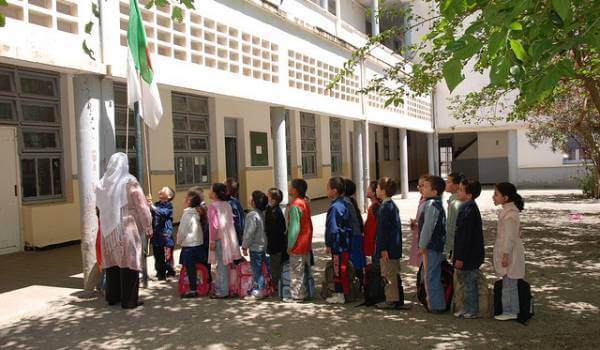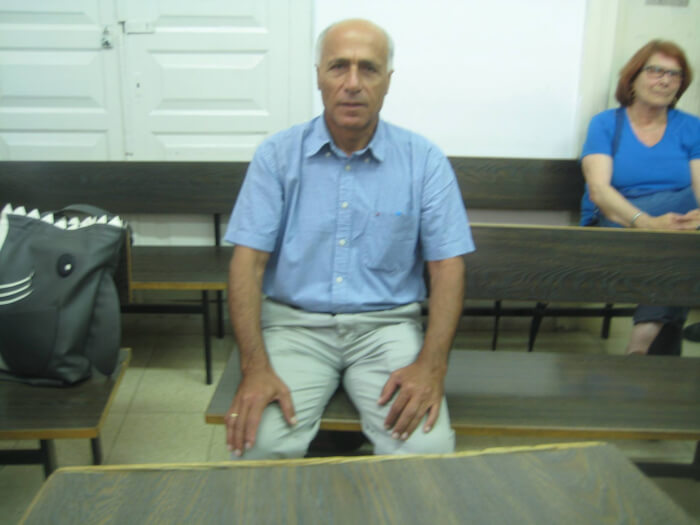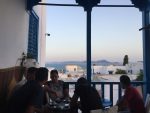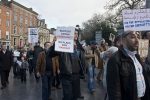The Algerian Political Impasse Creates Societal Disorder. A political imperative can only produce and question the weakness or the absence of the State and with it the society that is participating in a national suicide.
By Abdennour Toumi
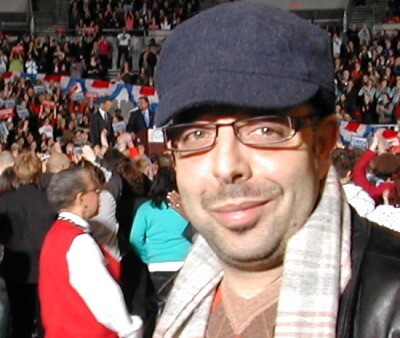
For politicians, it’s a mistake to bet on pessimism; however, when leaders become unavailable and people don’t have anything left to hope for, they turn to cynicism and rumors. As a result, they no longer place trust in their political leaders who must then confront their voters. This is the nature of politics.
In a crisis, those in power need to reassure the people, answer their legitimate questions and meet their needs fairly if they want to earn the public trust, in other words, credibility. Sometimes the whole nation feels disconnected because those in power might need them during elections, but as soon as the polls are closed, they don’t care about their demands.
That’s what many Algerians are feeling, even academicians and journalists.
Rising Anger
Algeria’s problems are growing and the rapport between the ruling powers and the people continues to deteriorate; the ill-health of President Bouteflika has worsened this relation, adding to the on-going disruptive social conflicts.
For example, the teachers, the pupils’ parents’ associations, and the unemployed in the southern cities are threatening to strike, which will disrupt the new social year — as for the teachers and the parents’ associations this upset is due to curriculum reforms from grade school through college level.
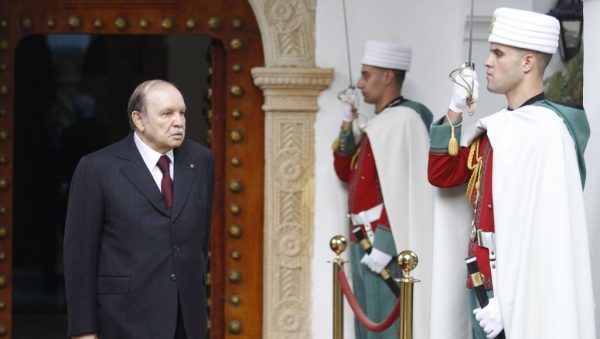
This in turn is making the parents very angry at the Education Ministry, which faces harsh criticism from its ideological opponents.
Add to that the fiasco of the 2016 Baccalaureate edition, and more recently an amateurish editing error in the sixth grade geography program, which cited Jerusalem as the capital of Israel, and instead of mentioning Palestine, placed Israel on the map (the Palestinian cause is the sacred cow of the Algerians). According to a professor attached to the Algiers Political Studies Institute (name withheld by request), this is “…the drop of water that has made the vase overflow…”, so he told me.
Algerians re-elected President Bouteflika for a fourth term in April, 2014, yet his health was arguably questioned by the majority of Algerians and political parties alike, add to that various ministers in Premier Sellal’s government caught in corruption scandals and incompetence. Some of them were named in the “Panama Paper” scandal, but in Algeria, as the saying goes, one doesn’t change a winning team!
Since 2012, Premier Sellal continues to lead a governmental team that is facing serious challenges after the fall of the oil price, and many social projects are on hold, forcing the population to tighten its belt due to increasing rates for services such as electricity, gas and water, and vehicles’ tax. Further, a new finance policy has cut spending and subsidies to offset a sharp drop in revenue from oil sales.
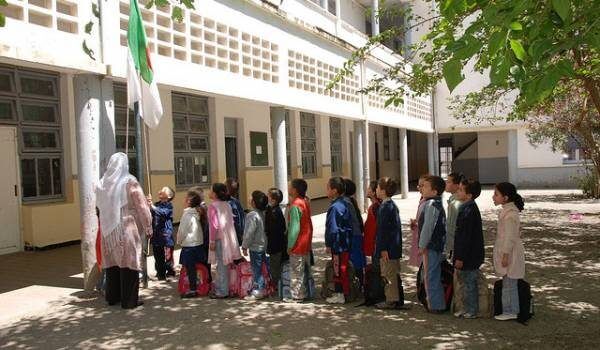
Frightening Reality
Under these circumstances people are asking for significant changes, i.e., increase of the minimum wage, safety for their children in the streets and schools, and economic transparency instead of austerity, which could produce much needed changes in their daily lives, an opinion voiced by Mustapha, who runs a small grocery store in a western Algiers’ suburb.
People feel betrayed by the hope they had placed in President Bouteflika. The country is in a political impasse; the national security is in serious danger because of the terrorist threat on its eastern and southern borders. Some analysts have gone so far to describe it as worse than the dark decade of terror.
Then it was the nation’s social cohesion in question; nevertheless, current events befalling the country have become extreme when high public servants settle their differences à la Godfather style, referring to the killing of the country’s Domestic Security Chief in 2009 and the shooting episode in the President’s second residency in Zeralda in the summer of 2015.
None of these elements signal a healthy political system nor a societal order, and the people are worried and concerned about the country’s future. What is taking place at the summit of the system leads neither to the stability nor security that the President’s platform promised in 1999.
Hence Algerians are asking how long President Bouteflika will let special interests steal the country’s wealth. They are also questioning his silence, particularly in light of the political tragedy that touched the credibility of the country’s national education system and millions of pupils’ dreams and hopes.
Nonetheless, just this month President Bouteflika appointed members to a national organization for prevention and elimination of corruption as indicated in a communiqué from the President’s Office.
Further, the director and editors of a publishing house under service contract to publish school books and manuals either intentionally or through ignorance lost basic information, which moreover embarrassed the Education Ministry and brought into question the entire educational system.
A political imperative can only produce and question the weakness or the absence of the State and with it the society that is participating in a national suicide.
Popular Demand
From the Baccalaureate fiasco to this week’s amateurish error in the sixth grade manual, not to mention the performance of the Algerian athletes in the Olympics in Rio — people have even been asking, is there a pilot in the plane at all?
Then, two weeks ago, President Bouteflika made a rare public appearance to inaugurate a convention center in the seaside resort of Club-des-Pins in the western hills of Algiers, Algeria’s Green Zone.
President Bouteflika, who was last seen in public two years ago, toured the site in a wheelchair. He suffered a stroke three years ago and since has dramatically reduced his public activity, leading the velvet opposition to question his ability to rule the country. These rare appearances continue to fuel speculation about the 79-year-old President’s health.
The Presidential term is not due until 2019, but Bouteflika’s opponents have demanded early elections because of his physical fragility, and Algerians are calling for municipal and legislative elections in 2017.
His appearance is seen as a move to assure the local public opinion and the international community in a time when Algeria is to host the meeting of the International Energy Forum (OPEC), the 14-nation cartel that controls a third of the world’s oil production. Certainly, Algiers will be trying to stabilize the oil market to support prices.
Algerians are tired of the coded language and images sent from the ruling powers via the local media. They want the President’s team in the government and his entourage in the palace to fight for them and not fuel their worst fears. They want their country to move forward to lead and not to bleed again.
However, the new growth model the government wants set up is impracticable for the simple reason that it has no support from the population, the civil society’s actors or even the political opposition parties.
The preservation of the centralized governance, with its slow, opaque and seldom transparent system of decision-making would prevent any emergence of a diversified economy based on successful independent entrepreneurs.
“In circumstances like these, it is important for a leader to demonstrate his leadership,” according to a former member of the Algerian diplomatic service (name withheld by request). “Algerians deserve answers from their leaders,” he continued. So, both the President’s advisors and his policy makers have to work harder to satisfy the people’s quest for social justice and security if they want them to abandon their pessimism and cynicism.
In the end, if the President’s entourage wants to rise out of this political impasse, they have to look to each other instead of away from each other and act with unity for the good of the people and the country.


- The Israeli-Palestinian Conflict: Is the Neither-Peace-nor-Security As-sumption Dominating Again? - June 7, 2021
- Algeria: “I Can See Clearly Now” - August 5, 2019
- Majesty Mohammed VI and General Gaïd Salah Tear Down This Wall! - July 29, 2019













